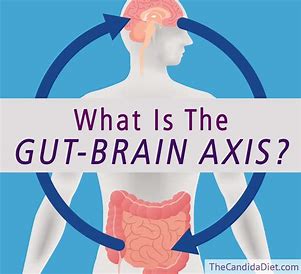Discover the Power of the Gut-Brain Axis
Nervous System Connections:
Your gut and brain are directly connected through the central nervous system (CNS) and the enteric nervous system (ENS). The ENS, often dubbed the “second brain,” is an intricate mesh of neurons lining your GI tract. This connection relays messages impacting digestion, nutrient absorption, and the gut’s stress response.
Hormonal Signaling:
Hormones act as messengers between your gut and brain. Your gut releases neurotransmitters such as serotonin, dopamine, and GABA.
These hormones regulate digestion, mood, emotions, and cognitive function.
Microbiota Influence:
Your gut is home to a community of microorganisms: the gut microbiota. They interact with your gut lining, producing metabolites and molecules influencing various processes. Surprisingly, these interactions have been tied to mental health conditions like anxiety and depression, emphasizing the role of your gut in shaping your emotional well-being.
Immune System Interaction:
The immune system mediates the conversation between your gut and brain. Immune cells and molecules can influence inflammation and neurological function.
Nutrient & Metabolite Exchange:
Your gut and brain exchange nutrients and metabolites. Dietary nutrients can impact brain function. Brain signals influence sensations of hunger and fullness through neural pathways. This dialogue ensures that your gut and brain are well-nourished and functioning optimally.
Nourish Your Gut with Brain-Boosting Foods
Start your journey by loading up on foods rich in prebiotics and probiotics. These are the superheroes that fuel your gut bacteria and help them thrive.
Reach for foods like yogurt, kefir, sauerkraut, and kimchi to introduce beneficial bacteria to your gut. High-fiber foods like whole grains, fruits, and vegetables also play a starring role. These goodies promote the growth of diverse gut microbes, supporting your brain’s health.
Embrace Stress-Busting Techniques
Remember, your gut and brain are in constant conversation. When stress hits, your gut feels it too. Try mindfulness meditation, deep breathing, or yoga to avoid stress. Research shows that these practices can positively influence the gut-brain axis, soothing inflammation and promoting a healthy balance of gut bacteria.
Prioritize Sleep Like Your Brain Depends On It (Because It Does!)
Your sleep patterns can affect your gut health and vice versa. Aim for 7-9 hours of quality sleep to allow your gut and brain to synchronize their activities.
A well-rested gut-brain axis can improve memory, cognitive function, and emotional well-being.
Hydrate for Gut
Remember the power of hydration. Drinking enough water supports digestion and nutrient absorption, ensuring your gut-brain axis is firing on all cylinders. Sip water throughout the day to keep your gut happy and your brain sharp.
Brain Harmony
Feed Your Brain with Omega-3 Fatty Acids
Omega-3 fatty acids, found in fatty fish like salmon and walnuts, are like brain fuel. These healthy fats help reduce inflammation in your gut and brain, promoting optimal communication. Make these foods a regular diet for a happy, well-functioning gut-brain axis.





